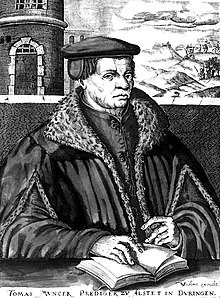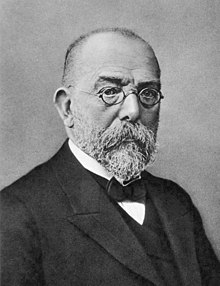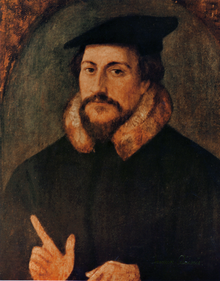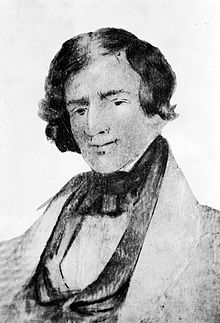May 27 is the 147th day of the year (148th in leap years) in the Gregorian calendar. There are 218 days remaining until the end of the year.
Holidays
- Armed Forces Day (Nicaragua)
- Children’s Day (Nigeria)
- Christian feast day:
- Mother’s Day (Bolivia)
- Navy Day (Japan)
- Slavery Abolition Day (Guadeloupe, Saint Barthélemy, Saint Martin)
- Start of National Reconciliation Week (Australia)
History
In 927, Death of Simeon I the Great, the first Bulgarian to be recognized as Emperor.
In 1096, Count Emicho enters Mainz, where his followers massacre Jewish citizens.[1] At least 600 Jews are killed
In 1120. Richard III of Capua is anointed as Prince two weeks before his untimely death.
In 1153, Malcolm IV becomes King of Scotland.
In 1199, John is crowned King of England.
In 1257, Richard, 1st Earl of Cornwall, and his wife, Sanchia of Provence, are crowned King and Queen of the Germans at Aachen Cathedral.

In 1525, Thomas Müntzer, German theologian (b. 1488) was decapitated. He was an early Reformation-era German theologian, who became a rebel leader during the Peasants’ War. He thought that the questioning of authority promoted by the Lutheran Reformation should be applied to the economic sphere. Under pressure, Luther had to distance from him, stating that the Reformation he supported was only spiritual. Müntzer was eventually captured, tortured and decapitated. If we could only do this today. Müntzer promoted of a new egalitarian society which would practice the sharing of goods. Müntzer’s movement and the peasants’ revolt formed an important topic in Friedrich Engels‘s book The Peasant War in Germany, a classic defense of historical materialism. Engels described Müntzer as a revolutionary socialist leader who chose to use religious language – the language the peasants would best understand.
In 1564, John Calvin, French pastor and theologian (b. 1509) died. He was 54. He was born Jehan Cauvin: and was an influential French theologian and pastor during the Protestant Reformation. He was a principal figure in the development of the system of Christian theology later called Calvinism. Originally trained as a humanist lawyer, he broke from the Roman Catholic Church around 1530. After religious tensions provoked a violent uprising against Protestants in France, Calvin fled to Basel, Switzerland, where he published the first edition of his seminal work Institutes of the Christian Religion in 1536.
In 1644, Manchu regent Dorgon defeats rebel leader Li Zicheng of the Shun dynasty at the Battle of Shanhai Pass, allowing the Manchus to enter and conquer the capital city of Beijing.
In 1703, Tsar Peter the Great founds the city of Saint Petersburg.

In 1774, The Virginia Burgesses declare their support for an annual intercontinental congress.
In 1798, The Battle of Oulart Hill takes place in Wexford, Ireland.
In 1799, War of the Second Coalition: Austrian forces defeats the French at Winterthur, Switzerland, securing control of the northeastern Swiss Plateau because of the town’s location at the junction of seven cross-roads.
In 1813, War of 1812: In Canada, American forces capture Fort George.
In 1831, Jedediah Smith, American hunter, explorer, and author (b. 1799) dies. He was the son of a Bainbridge, New York general store owner, was a hunter, trapper, fur trader, trailblazer, author, cartographer and explorer of the Rocky Mountains, the American West Coast and the Southwest during the 19th century. Nearly forgotten by historians almost a century after his death, Smith has been rediscovered as an American hero who was the first white man to travel overland from the Salt Lake frontier, the Colorado River, the Mojave Desert, and finally into California. Smith was the first United States citizen to explore and eastwardly cross the Sierra Nevada and the treacherous Great Basin. Smith also was the first American to travel up the California coast to reach the Oregon Country. Not only was he the first to do this, but he and Robert Stuart discovered the South Pass. This path became the main route used by pioneers to travel to the Oregon Country. Surviving three massacres and one bear mauling, Jedediah Smith’s explorations and documented discoveries were highly significant in opening the American West to expansion by white settlers and cattlemen.
In 1849, The Great Hall of Euston station in London is opened.
In 1860, Giuseppe Garibaldi begins his attack on Palermo, Sicily, as part of the Italian Unification.
In 1863, American Civil War: First Assault on the Confederate works at the Siege of Port Hudson.
In 1874, The first group of Dorsland trekkers under the leadership of Gert Alberts leaves Pretoria.
In 1883, Alexander III is crowned Tsar of Russia.
In 1896, The F4-strength St. Louis-East St. Louis Tornado hits in St. Louis, Missouri, and East Saint Louis, Illinois, killing at least 255 people and causing $2.9 billion in damage (1997 USD).
In 1905, Russo-Japanese War: The Battle of Tsushima begins.
In 1907, Bubonic plague breaks out in San Francisco, California.
In 1908, Khilafat Day – the day of establishment of Khilafat in Islam Ahmadiyya.

In 1910, Robert Koch, German physician, Nobel Prize laureate (b. 1843) dies. He was a celebrated German physician and pioneering microbiologist. The founder of modern bacteriology, he is known for his role in identifying the specific causative agents of tuberculosis, cholera, and anthrax and for giving experimental support for the concept of infectious disease. In addition to his trail-blazing studies on these diseases, Koch created and improved laboratory technologies and techniques in the field of microbiology, and made key discoveries in public health. His research led to the creation of Koch’s postulates, a series of four generalized principles linking specific microorganisms to specific diseases that remain today the “gold standard” in medical microbiology. As a result of his groundbreaking research on tuberculosis, Koch received the Nobel Prize in Physiology or Medicine in 1905.
USS Orizaba was a transport ship for the U.S. Navy in World War I and World War II, first commissioned on 27 May 1918. Orizaba made 15 transatlantic voyages for the Navy carrying troops to and from Europe in World War I with the second-shortest average in-port turnaround time of all Navy transports. The ship was turned over to the War Department in 1919 for use as Army transport USAT Orizaba. After the war, the troopship reverted to the Ward Line, her previous owners. In World War II the ship was requisitioned by the War Shipping Administration and again assigned to the War Department, but was soon transferred to the U.S. Navy as USS Orizaba (AP-24). The ship made several transatlantic runs, was damaged in an air attack in the Allied invasion of Sicily, made trips to South America, and served in the Pacific Theatre. In June 1945 the ship was transferred under Lend-Lease to the Brazilian Navy, where she served as Duque de Caxias (U-11). Permanently transferred to Brazil in 1953, the ship was decommissioned in 1959 and scrapped in 1963.
In 1919, The NC-4 aircraft arrives in Lisbon after completing the first transatlantic flight.
In 1927, The Ford Motor Company ceases manufacture of the Ford Model T and begins to retool plants to make the Ford Model A.
In 1930, The 1,046 feet (319 m) Chrysler Building in New York City, the tallest man-made structure at the time, opens to the public.
In 1933, New Deal: The U.S. Federal Securities Act is signed into law requiring the registration of securities with the Federal Trade Commission.
In 1933, The Walt Disney Company releases the cartoon Three Little Pigs, with its hit song “Who’s Afraid of the Big Bad Wolf?“
In 1933, The Century of Progress World’s Fair opens in Chicago, Illinois.
In 1935, New Deal: The Supreme Court of the United States declares the National Industrial Recovery Act to be unconstitutional in A.L.A. Schechter Poultry Corp. v. United States, (295 U.S. 495).
In 1936, The Cunard liner “RMS Queen Mary” left England on its maiden voyage.
In 1937, In California, the Golden Gate Bridge opens to pedestrian traffic, creating a vital link between San Francisco and Marin County, California.
In 1940, World War II: In the Le Paradis massacre, 99 soldiers from a Royal Norfolk Regiment unit are shot after surrendering to German troops; two survive.
In 1941, World War II: The U.S. President Franklin D. Roosevelt proclaims an “unlimited national emergency”.
In 1941, World War II: The German battleship Bismarck is sunk in the North Atlantic killing almost 2,100 men.
In 1942, World War II: In Operation Anthropoid, Reinhard Heydrich is fatally wounded in Prague; he dies of his injuries eight days later.
In 1949, Robert Ripley, American cartoonist, publisher, and businessman, founded Ripley’s Believe It or Not! (b. 1890) succumbed to a heart attack in New York City. He was buried in his home town of Santa Rosa, in the Oddfellows Lawn Cemetery, which is adjacent to the Santa Rosa Rural Cemetery. LeRoy Robert Ripley better know by the name Robert Ripley, was an American cartoonist, entrepreneur, and amateur anthropologist, who is known for creating the Ripley’s Believe It or Not! newspaper panel series, radio show, and television show which feature odd facts from around the world. Subjects covered in Ripley’s cartoons and text ranged from sports feats to little known facts about unusual and exotic sites; but what ensured the concept’s popularity may have been that Ripley also included items submitted by readers, who supplied photographs of a wide variety of small town American trivia, ranging from unusually shaped vegetables to oddly marked domestic animals, all documented by photographs and then depicted by Ripley’s drawings.
In 1958, The F-4 Phantom II makes its first flight.
In 1960, In Turkey, a military coup removes President Celal Bayar and the rest of the democratic government from office.

In 1960, James Montgomery Flagg, American painter and illustrator (b. 1877) dies. He was an American artist and illustrator. He worked in media ranging from fine art painting to cartooning, but is best remembered for his political posters. He created his most famous work in 1917, a poster to encourage recruitment in the United States Army during World War I. It showed Uncle Sam pointing at the viewer (inspired by a British recruitment poster showing Lord Kitchener in a similar pose) with the caption “I Want YOU for U.S. Army”. Over four million copies of the poster were printed during World War I, and it was revived for World War II. Flagg used his own face for that of Uncle Sam (adding age and the white goatee), he said later, simply to avoid the trouble of arranging for a model. President Franklin Delano Roosevelt praised his resourcefulness for using his own face as the model. By some accounts though, Flagg had a neighbor, Walter Botts, pose for the piece. At his peak, Flagg was reported to have been the highest paid magazine illustrator in America. In 1946 Flagg published his autobiography, Roses and Buckshot. Apart from his work as an illustrator, Flagg painted portraits which reveal the influence of John Singer Sargent. Flagg’s sitters included Mark Twain and Ethel Barrymore; his portrait of Jack Dempsey now hangs in the Great Hall of the National Portrait Gallery. In 1948 he appeared in a Pabst Blue Ribbon magazine ad which featured the illustrator working at an easel in his New York studio with a young lady standing at his side and a tray with an open bottle of Pabst and two filled glasses sat before them.
In 1962, The Centralia mine fire is ignited in the town’s landfill above a coal mine.
In 1965, Vietnam War: American warships begin the first bombardment of National Liberation Front targets within South Vietnam.
In 1967, Australians vote in favor of a constitutional referendum granting the Australian government the power to make laws to benefit Indigenous Australians and to count them in the national census.
In 1967, The U.S. Navy aircraft carrier USS John F. Kennedy is launched by Jacqueline Kennedy and her daughter Caroline.
In 1968, The meeting of the Union Nationale des Étudiants de France (National Union of the Students of France) takes place. 30,000 to 50,000 people gather in the Stade Sebastien Charlety.
In 1968, Major League Baseball‘s National League awards Montreal the first franchise in Canada and the first franchise outside the United States. (the Montreal Expos)
In 1971, The Dahlerau train disaster, the worst railway accident in West Germany, kills 46 people and injures 25 near Wuppertal.
In 1975, Dibbles Bridge Coach Crash near Grassington, in North Yorkshire, England, kills 33 – the highest ever death toll in a road accident in the United Kingdom.
In 1980, The Gwangju Massacre: Airborne and army troops of South Korea retake the city of Gwangju from civil militias, killing at least 207 and possibly many more.
In 1983, Webb Farm disaster: a massive explosion at a secret unlicensed fireworks plant near Benton, Tennessee, kills eleven, injures one, and causes damage within a radius of several miles.
In 1986, Dragon Quest, the game credited as setting the template for role-playing video games, is released in Japan.
In 1995, In Culpeper, Virginia, the actor Christopher Reeve is paralyzed from the neck down after falling from his horse in a riding competition.
In 1995, The 7.0 Mw Neftegorsk earthquake shakes northern Sakhalin Island in Russia with a maximum Mercalli intensity of IX (Violent), leaving 1,989 people dead and 750 injured.
In 1996, First Chechnya War: the Russian President Boris Yeltsin meets with Chechnyan rebels for the first time and negotiates a cease-fire.
In 1997, The unusual tornado outbreak in Jarrell, Texas.
In 1997, The U.S. Supreme Court rules that Paula Jones can pursue her sexual harassment lawsuit against President Bill Clinton while he is in office.
In 1998, Oklahoma City bombing: Michael Fortier is sentenced to 12 years in prison and fined $200,000 for failing to warn authorities about the terrorist plot.
In 2001, Members of the Islamist separatist group Abu Sayyaf seize twenty hostages from an affluent island resort on Palawan in the Philippines; the hostage crisis would not be resolved until June 2002.
In 2006, The May 2006 Java earthquake strikes devastating Bantul and the city of Yogyakarta killing over 6,600 people.
In 2009, A suicide bombing kills at least 35 people and injures 250 more in Lahore, Pakistan.
In 2009, Soyuz TMA-15 launches from the Baikonur Cosmodrome in Kazakhstan.
In 2016, Barack Obama, first as the president of United States, visits Hiroshima Peace Memorial Park and meets Hibakusha.
In 2017, Andrew Scheer takes over after Rona Ambrose as the leader of the Conservative Party of Canada.

In 2017, Gregg Allman, American musician, singer and songwriter (b. 1947) dies at his home in Richmond Hill, Georgia, on May 27, 2017, due to complications from liver cancer. He was 69 years old. His funeral took place at Snow’s Memorial Chapel in Macon on June 3, and was attended by once-estranged bandmate Dickey Betts, his ex-wife Cher, and former President Carter, among others. According to Rolling Stone, the mourners dressed casually in jeans per Allman’s request, and “hundreds of fans, many wearing Allman Brothers shirts and listening to the band’s music, lined the route along the funeral procession.” He was buried at Rose Hill Cemetery in Macon, beside his brother Duane, and fellow band member Berry Oakley.
He was an American singer-songwriter and musician. He was known for performing in the Allman Brothers Band. Allman grew up with an interest in rhythm and blues music, and the Allman Brothers Band fused it with rock music, jazz, and country at times. He wrote several of the band’s biggest songs, including “Whipping Post“, “Melissa“, and “Midnight Rider“. Allman also had a successful solo career, releasing seven studio albums. He was born and spent much of his childhood in Nashville, Tennessee, before relocating to Daytona Beach, Florida.
He and his brother, Duane Allman, formed the Allman Brothers Band in 1969, which reached mainstream success with their 1971 live album At Fillmore East. Shortly thereafter, Duane was killed in a motorcycle crash. The band continued, with Brothers and Sisters (1973) their most successful album. Allman began a solo career with Laid Back the same year, and was perhaps most famous for his marriage to pop star Cher for the rest of the decade. He had an unexpected late career hit with the song “I’m No Angel” in 1987, and his seventh solo album, Low Country Blues (2011), saw the highest chart positions of his career. Throughout his life, Allman struggled with alcohol and substance abuse, which formed the basis of his memoir My Cross to Bear (2012). His final album, Southern Blood, was released posthumously on September 8, 2017.
Allman performed with a Hammond organ and guitar, and was recognized for his soulful voice. For his work in music, Allman was referred to as a Southern rockpioneer and received numerous awards, including one Grammy Award; he was inducted into the Rock and Roll Hall of Fame and the Georgia Music Hall of Fame. His distinctive voice placed him in 70th place in the Rolling Stone list of the “100 Greatest Singers of All Time”.
In 2018, Maryland Flood Event: A flood occurs throughout the Patapsco Valley causing one death and destroying the entire first floors of buildings on Main Street in Ellicott City and causing cars to overturn.





